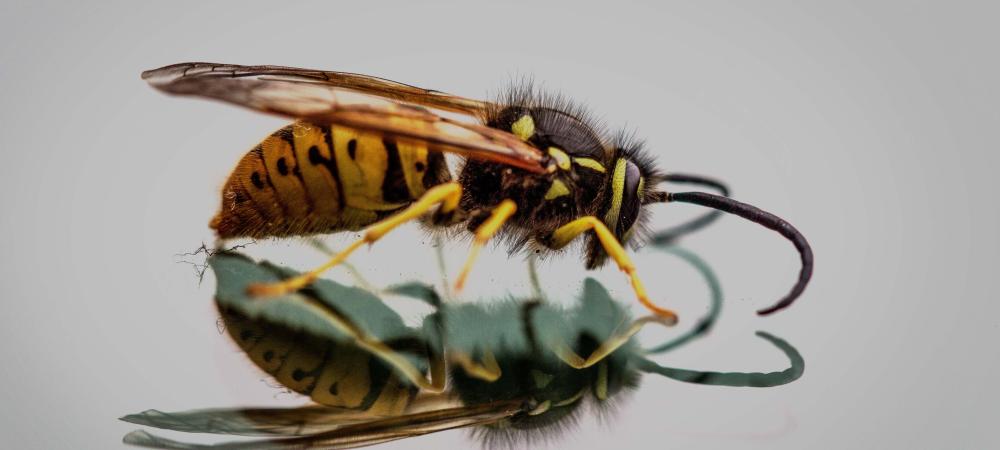What Are Cicada Killer Wasps?

Cicada killer wasps are often very focused on the task at hand, which is to dig underground burrows and then fill those areas with paralyzed cicadas that they then use as food for their larvae. Typically, these wasps are about two inches in length. They tend to be dark brown or black in color with yellow markings on their abdomen. They also have amber-colored wings.
Here are a few things you should know about cicada killer wasps:
- They nest in the ground and fill that nest specifically with cicadas.
- Each year, the males emerge first from these burrows. The mating season gets underway when the females emerge from the soil.
- Once the mating occurs, the females get busy creating a burrow for their larvae. That’s common in lawns in densely populated areas. The burrows can be as deep as 10 inches.
- Most do not have any interaction with people, but they will sting if they are bothered.
Where Are Cicada Killer Wasps Found?
These wasps are common in eastern portions of the U.S. as well as areas east of the Rocky Mountains. They become more apparent during June and July. Most people notice them digging in sand or soils, though they can be seen around flowers as well.
Are Cicada Killer Wasps Dangerous?
Cicada wasps are large predator wasps that prey on cicadas. While they are prolific killers of cicadas, they do not create any risk to humans. Still, it may be a good idea to know what they are and what they look like before you start to see them in this area of Pennsylvania.
The core problem with them is the significant damage they can cause to yards. They can displace as much as several pounds of soil while creating and raising their young. When this happens, it can cause sidewalks and other solid surfaces to become unstable.
What to Do About Cicada Killer Wasps
The good news is they are not likely to bother you, your family, or your pets, as long as you don’t trouble them. They don’t typically guard their nests, which means walking through your yard where there are nests should not be a problem. Males are more territorial pests, but they don’t have stingers.
It can be hard to get rid of cicada killer wasps. Instead of trying to eliminate them yourself, it’s best to seek out help from a certified professional. Some types of insecticides may be helpful when placed into burrows.
